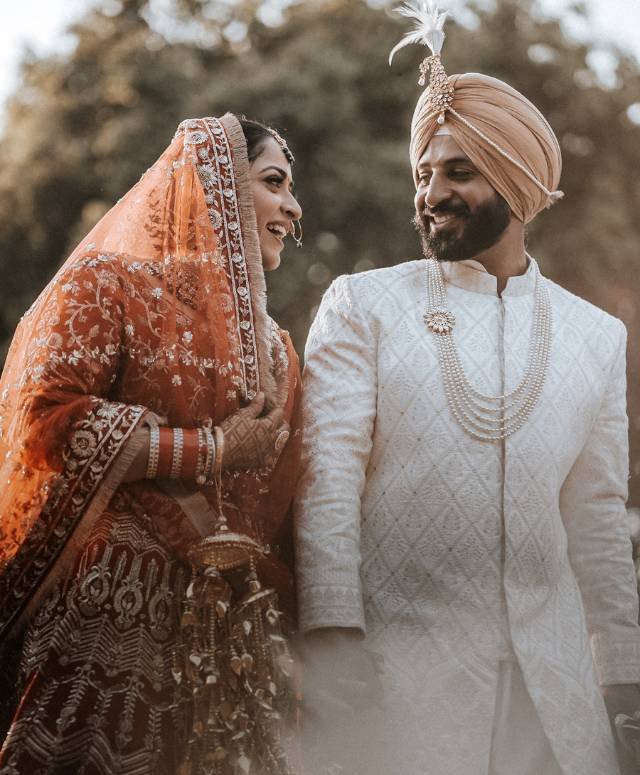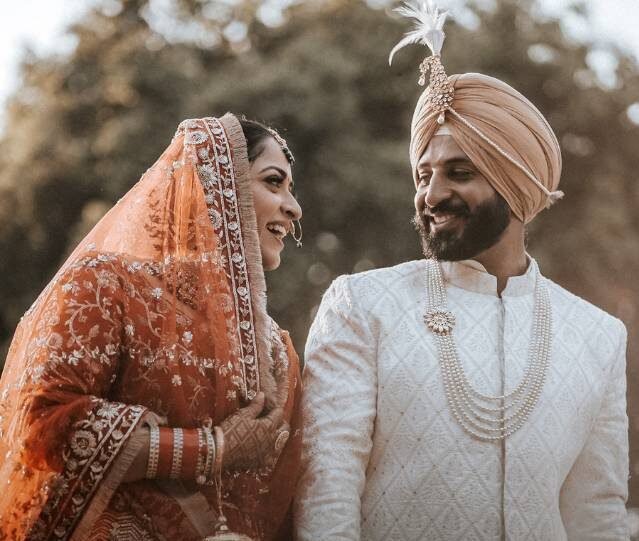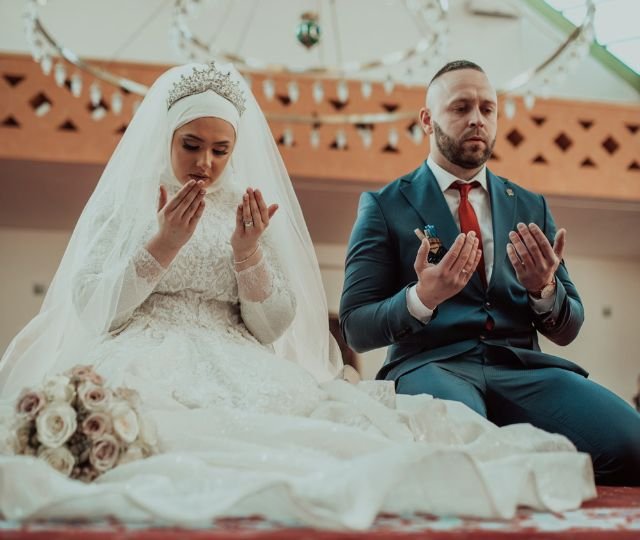Simplify Your
Marriage Process
Experience the simplicity and reliability of our Chandigarh court marriage services. Our dedicated team of experts will navigate the legal intricacies, making your journey towards matrimony stress-free, smooth, and memorable, ensuring a solid foundation for your love story.

About Us
Your Trusted Partner for Court Marriages in Chandigarh
We specialize in a range of essential matrimonial services to meet your needs. Our services include Court Marriages, Foreigners / NRI Marriages, Aryasamaj Marriages, Muslim Marriages / Nikah, Intercaste / Interreligion Marriages, and providing Police Protection for eloped couples after a Court Marriage.
With a focus on professionalism and legal compliance, our experienced team is dedicated to guiding you through every step of your marriage journey. We understand that every love story is unique, and we are committed to ensuring that your union is not only legally recognized but also celebrated with the care and attention it deserves. Trust us to provide you with the expertise and support you need to make your special day a smooth and memorable experience. Contact us today to learn more about how we can assist you in achieving a secure and happy marriage.
Our services

Court Marriage
We specialize in simplifying the court marriage process, making it seamless and stress-free. With years of experience and a deep understanding of the legal landscape, we are your trusted partners for legalizing your love and commitment.

Foreigners / NRI Marriages
Our dedicated team will assist you with the necessary documentation, legal procedures, and cultural considerations to make your court marriage a hassle-free experience.

Aryasamaj Marriages
All Hindus including Jains, Sikhs & Buddhists can perform their marriage in Arya Samaj Temple & the Marriage certificate is completely valid for the registration of marriage in the court.

Muslim Marriage / Nikah
Embark on your journey of love and commitment with our Nikah and Muslim marriage services. We specialize in facilitating the sacred union of couples in accordance with Islamic traditions.

Intercaste / Interreligion Marriage
Love knows no boundaries. We specialize in facilitating court marriages for couples from different castes or religions, ensuring harmony and legal compliance.

Police Protection for Eloped Couple after Court Marriage
We understand the challenges faced by couples who choose love against all odds. Our services include securing police protection for your safety and peace of mind post-marriage.
Eligibility Criteria for Court Marriage Registration
The eligibility criteria for court marriage registration in Chandigarh, like in many parts of India, generally include the following:
Age Eligibility: Both parties should meet the minimum age requirements. The legal age for marriage is 18 years for brides and 21 years for grooms.
Mental Capacity: Both individuals should be of sound mind and capable of understanding the nature and consequences of marriage.
Consent: The marriage must be entered into with the free and full consent of both parties. It should not involve coercion, fraud, or undue influence.
No Existing Marriages: At the time of the marriage, neither party should have a living spouse. If previously married, they should provide proof of divorce or the death certificate of the former spouse.
Not Within Prohibited Relationships: The individuals should not be closely related as defined under the Hindu Marriage Act or other relevant personal laws. The specific prohibited relationships may vary based on the religion and personal law applicable to the couple.
Notice of Intended Marriage: The parties should give notice of their intention to marry to the Marriage Officer in the prescribed format at least 30 days before the intended date of marriage. This notice is typically displayed at the Marriage Office for public scrutiny to allow for objections, if any.
Witnesses: The presence of two witnesses who are of sound mind and have attained the age of 21 years is usually required at the time of registration.
Documents Required for Registration of Marriage
Application Form: The application form for marriage registration, which can be obtained from the local Marriage Registrar’s Office or downloaded from the official website.
Proof of Identity and Age: Both parties should provide documents as proof of identity and age, such as:
- Aadhar Card
- Passport
- Voter ID Card
- Driving License
- PAN Card
- Birth Certificate
Residence Proof: Documents to establish the place of residence for both parties, such as:
- Aadhar Card
- Passport
- Voter ID Card
- Utility bills (electricity, water, or gas bills) in the name of either spouse
Passport-sized Photographs: Recent passport-sized photographs of both the bride and groom.
Affidavit of Marital Status: An affidavit declaring the marital status of both parties (unmarried, divorced, or widowed) and their consent to the marriage.
Witnesses: Two witnesses with valid proof of identity and age (witnesses should be of legal age, usually 21 years or older).
Death Certificate or Divorce Decree: If either party has been previously married, they should provide a death certificate of the deceased spouse or a divorce decree absolute.
Conversion Certificate (if applicable): If one party has converted to another religion, a conversion certificate may be required.
Any Other Documents: The Marriage Registrar may request additional documents or specific forms based on the circumstances of the marriage.
Stepwise Court Marriage Registration Process
The court marriage registration process in India typically involves several steps. Below is a step-by-step guide to the process:
Step 1: Visit the Marriage Registrar’s Office
Visit the office of the Marriage Registrar in the district where either party has resided for at least 30 days preceding the date of the marriage. This office is responsible for conducting and registering court marriages.
Step 2: Obtain and Fill the Application Form
Obtain the prescribed application form for marriage registration from the Marriage Registrar’s Office. Fill out the form completely and accurately. Both parties must sign the form along with two witnesses.
Step 3: Attach Required Documents
Attach all the necessary documents as mentioned in the previous response, such as proof of identity, proof of age, residence proof, photographs, affidavit of marital status, divorce decree (if applicable), and any other documents required by the Marriage Registrar.
Step 4: Submit Notice of Intended Marriage
Submit the completed application form and the notice of intended marriage to the Marriage Registrar. The notice of intended marriage is usually displayed at the office for public scrutiny for a period of 30 days. During this time, objections, if any, can be raised.
Step 5: Verification of Documents and Objections
The Marriage Registrar will verify the documents and investigate any objections raised during the notice period. If there are no valid objections, the marriage can proceed.
Step 6: Fix a Marriage Date
Once the notice period is complete, and there are no objections, the Marriage Registrar will assign a date for the marriage. Both parties, along with two witnesses, must be present on the specified date.
Step 7: Marriage Ceremony
On the assigned date, the Marriage Registrar will conduct the marriage ceremony. The parties, witnesses, and the Marriage Registrar sign the marriage certificate.
Step 8: Receive Marriage Certificate
After the marriage ceremony, you will be issued a marriage certificate, also known as the Marriage Registration Certificate. This certificate serves as proof of your legal marriage.
Step 9: Registration of Marriage
The Marriage Registrar records the marriage details in the Marriage Register, and the marriage is officially registered.
Step 10: Obtain Certified Copies
You can request certified copies of the marriage certificate for legal and personal use. These copies can be useful for various purposes, such as visa applications, passport updates, and more.
Expertise
Our experienced team specializes in court marriages, ensuring that your union is legally sound and hassle-free.
Efficiency
We streamline procedures to save you time and effort, making your court marriage process swift and stress-free.
Legal Compliance
With us, you can trust that all legal requirements and formalities are met, leaving no room for future complications.
